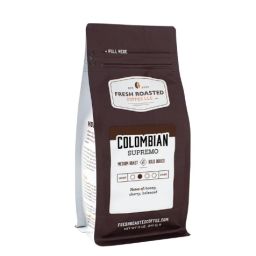
Turkish coffee, renowned for its intense flavor and unique brewing technique, carries a medley of health implications. This coffee style, deeply embedded in cultural traditions, offers both a rich taste experience and a subject for health discussions. With its unfiltered nature and robust caffeine content, Turkish coffee’s health impacts are diverse, ranging from potential benefits to considerations worth mindful attention.
Key Takeaways
- Health Benefits: Turkish coffee is a source of antioxidants and has been linked to improved heart health, enhanced physical performance, and a potential reduction in the risk of chronic diseases.
- Potential Risks: While offering numerous health benefits, it’s important to consume Turkish coffee in moderation due to its high caffeine content, which could lead to insomnia, increased heart rate, and other caffeine-related issues.
- Mindful Consumption: Opting for lightly roasted beans and minimizing added sugar can make Turkish coffee a healthier choice.
- FAQs Addressed: Common questions about Turkish coffee, including its impact on weight loss, recommended daily consumption, and its caffeine strength compared to espresso, will be explored to guide optimal enjoyment.
Health Benefits of Turkish Coffee
Energy and Alertness: Starting your day with a cup of Turkish coffee can zap away the remnants of sleepiness, thanks to its caffeine content. This isn’t just any jolt of energy; it’s a vibrant, alert wakefulness that sharpens your focus and banishes the fog in your brain. Whether you’re tackling a busy workday or need a boost for your studies, Turkish coffee is your ally in concentration.
Antioxidant Properties: Turkish coffee is like a hidden superhero of beverages when it comes to antioxidants. These powerful substances, which include chlorogenic acids, fight off the damaging effects of free radicals in your body. From supporting heart health to potentially lowering your risk for certain diseases, the antioxidants in Turkish coffee pack a punch well above their weight class.
Cardiovascular and Neurological Health: Sipping on Turkish coffee may do more than just perk you up; it could be a guardian for your heart and brain. Regular, moderate intake has been associated with a lower risk of heart disease and neurological conditions such as Alzheimer’s and Parkinson’s disease. It’s like each sip is a step towards a healthier heart and a sharper mind.
Metabolic Rate and Weight Loss: If you’re eyeing Turkish coffee for weight loss, there’s good news. The caffeine in your brew can kickstart your metabolism, making your body more efficient at burning calories. While it’s not a magic weight loss elixir, when consumed in moderation, it could be a helpful ally in your weight management journey.
Physical Performance and Recovery: For the fitness enthusiasts, Turkish coffee might just be the pre-workout boost you didn’t know you needed. The caffeine not only enhances your physical performance by increasing adrenaline levels but also aids in quicker recovery and less muscle soreness after exercise. It’s like having a personal cheerleader and therapist in one cup.
Social and Mental Well-being: Beyond its physical benefits, Turkish coffee holds a special place in social and mental wellness. Sharing a cup with friends or family is not just about enjoying a delicious drink; it’s a ritual that fosters connection, belonging, and happiness. In a world that moves at breakneck speed, Turkish coffee reminds us of the joy found in slow, meaningful moments.
Potential Health Risks of Turkish Coffee
Caffeine-Related Issues: For all its invigorating qualities, Turkish coffee’s high caffeine content can be a double-edged sword. Consuming it too late in the day or in large amounts might lead to insomnia, making it tough to catch those much-needed Z’s. It can also quicken your heartbeat, which feels less like excitement and more like you’re running a marathon while sitting. And then, there’s caffeine dependency – nobody wants to face the day only after their caffeine fix, accompanied by headaches and irritability when they skip their ritual cup.
Digestive Problems: The robustness of Turkish coffee comes with a level of acidity that might not sit well with everyone. If your stomach often sings the blues with acid reflux or heartburn, Turkish coffee could potentially turn up the volume on those discomfort tunes. It’s like inviting a band to play in your digestive system without checking if you enjoy the music.
Increased Risk of Heart Disease: This is a bit of a complex tune. While moderate coffee consumption has its perks, the specific compounds in Turkish coffee, thanks to its unfiltered nature, raise some eyebrows. There’s a conversation to be had about how certain elements, when consumed excessively, might stress the heart more than we’d like. It’s not about skipping the coffee altogether but tuning into your body’s responses and playing it safe with moderation.
How to Enjoy Turkish Coffee in a Healthy Way
Savoring Turkish coffee doesn’t mean you have to compromise on health. Opt for lightly roasted beans, which have a lower chlorogenic acid content, making your coffee gentler on the stomach. Also, think about dialing down the sugar or skipping it altogether. Enjoying your coffee closer to its natural state not only lets you appreciate its rich flavors but also cuts down on unnecessary calories.
FAQs
Does Turkish coffee help you lose weight?
Yes and no. The caffeine in Turkish coffee can boost your metabolism, potentially aiding in weight loss. However, adding lots of sugar can counteract these benefits, so moderation is key.
How much Turkish coffee should be consumed daily?
To enjoy its benefits without overdoing the caffeine, stick to one or two small cups a day. This keeps your caffeine intake within healthy limits and allows you to enjoy Turkish coffee’s rich taste without overstimulation.
Is Turkish coffee stronger than espresso?
Yes, in terms of brewing technique and flavor intensity, Turkish coffee is stronger. However, a single serving is small, so the caffeine content may be comparable to a shot of espresso, depending on how it’s brewed.
Final Thoughts
Turkish coffee offers a unique blend of cultural richness and potential health benefits, from improved alertness to heart health. Yet, its strength and brewing method mean it’s best enjoyed with an eye toward moderation. By choosing lightly roasted beans, limiting sugar, and watching your daily intake, you can enjoy Turkish coffee as a delightful part of a healthy lifestyle.









